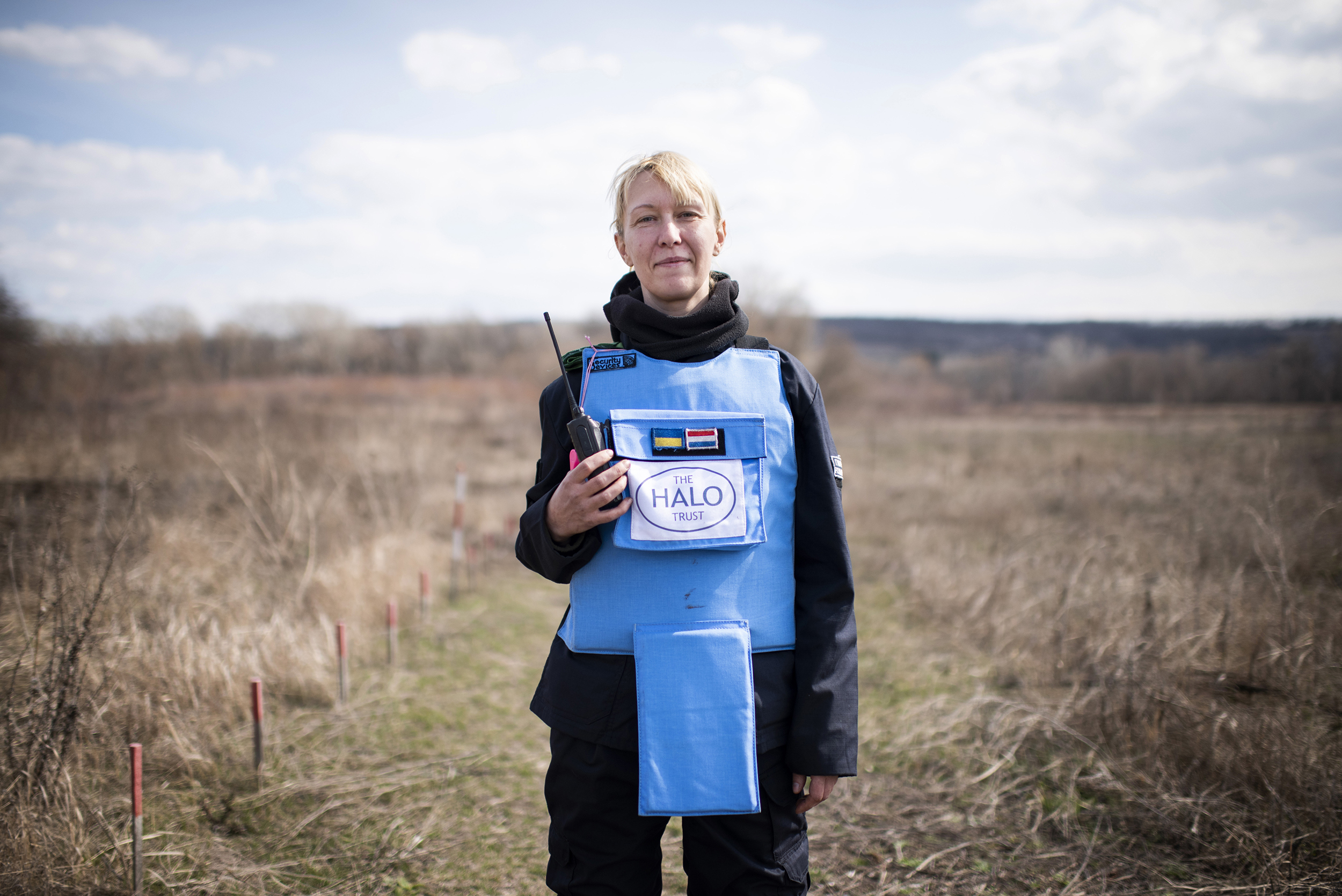Landmine danger to displaced highlighted at new programme launch
Landmine danger to displaced highlighted at new programme launch

GENEVA, November 15 (UNHCR) - Assistant High Commissioner Erika Feller highlighted the danger that mines and other munitions pose to refugees and the displaced during the launch here this week of a major new programme.
"These are not abstract issues for UNHCR. Landmines, unexploded ordnance and explosive remnants of war create pervasive protection and human security concerns in many of our operations," Feller said on Tuesday at the launch of the Portfolio of Mine Action Projects 2007
"They constitute formidable obstacles to the return of refugees and internally displaced people, and they have a detrimental effect on economic development and the livelihoods of populations in affected areas. We are committed to play our part in reinforcing mine action strategies in relevant country programmes," she added.
Presented in a document on Tuesday, the initiative is a collection of mine action project proposals in 29 countries. It is a joint venture between the UN Mine Action Service (UNMAS), the UN Development Programme, and the UN Children's Fund. UNHCR was invited to attend the launch.
The latest edition of the Portfolio of Mine Action Projects gathers 300 proposals covering a range of activities, including clearance and marking of hazardous areas, mine risk education, victim assistance, destruction of stockpiled landmines, and advocacy for international agreements related to landmines and explosive remnants of war.
The combined budgets of all project proposals for 2007 total US$429 million. Only US$111.7 million in funding has been secured to date.
Increased cooperation between UNHCR, UNMAS and other mine action partners is evident in many countries around the world, including Chad, Angola, the Democratic Republic of the Congo and Cambodia.
Feller also noted the danger posed by landmines and unexploded ordnance after the recent conflict in Lebanon. "In the context of the Lebanon emergency, unexploded ordnance was, and remains, among the most acute threats to physical safety and security," Feller said. "Within a month after the ceasefire more than 100 casualties were being reported, 33 percent of them children," she added.
According to UN mine clearance experts more than one million pieces of unexploded ordnance, including the bomblets scattered by cluster bombs, are littered over southern Lebanon, posing a constant threat to thousands of civilians as well as to humanitarian and reconstruction workers. Many Lebanese who returned after being displaced elsewhere in the country are now living dangerously close to some of these lethal weapons.
In Lebanon, UNHCR assisted UNMAS with warehouse facilities for its local team and five 4x4 trucks for rapid deployment of mine action. UNHCR has also worked closely there with UNMAS's local community liaison officers and helped to identify areas of greatest need and ensure the distribution of assistance sooner than would have otherwise been possible. UNHCR and UNMAS have also cooperated recently in south Sudan.
Landmines and unexploded munitions are one of the most enduring and lethal legacies of war, killing or maiming innocent people for years after conflict is over. They also hamper economic development.








